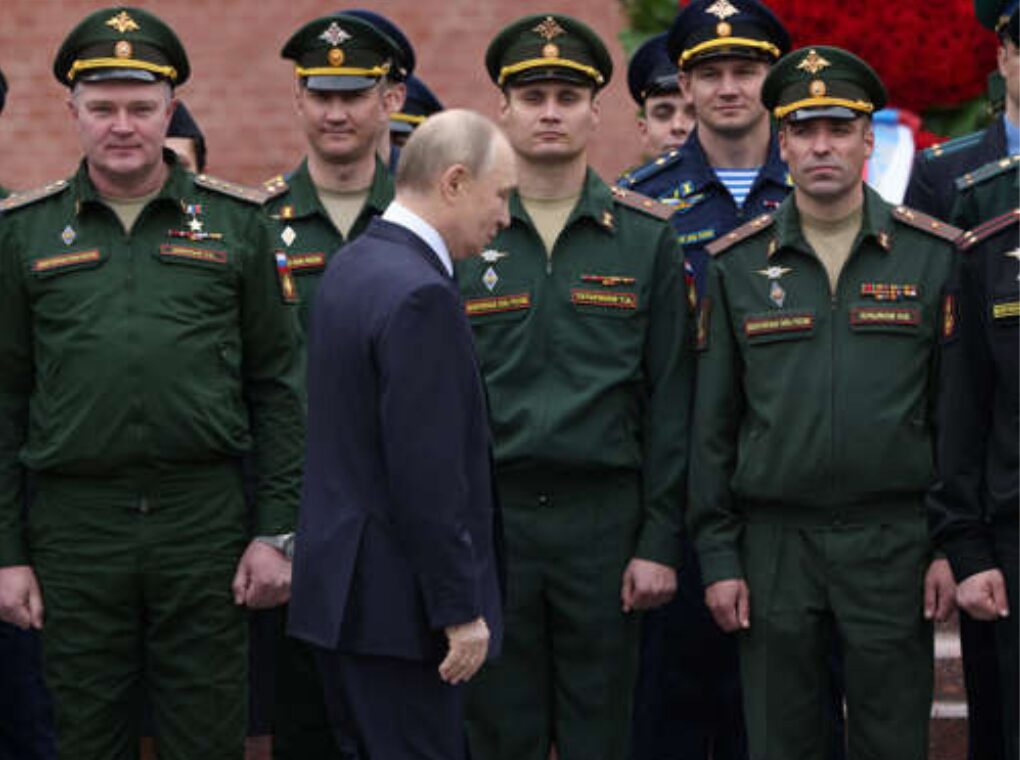In a notable battlefield shift, Ukrainian forces have successfully halted Russia’s latest offensive into the northeastern Sumy region, according to Ukraine’s top military commander, General Oleksandr Syrskyi. The development marks a critical defensive win for Kyiv and underscores growing internal pressures within the Russian military as the war enters its third year.
Frontline Stabilized in Sumy
General Syrskyi confirmed Thursday that Ukrainian troops had stabilized the front line near the Russian border, stopping a push that could have allowed Moscow to redeploy tens of thousands of troops elsewhere along the 1,000-kilometre front.
“Based on the results of May and June, we can say that this year’s wave of the enemy’s summer offensive from Russian territory is faltering,” Syrskyi said.
Sumy, a city of around 250,000 residents before the war, now sits at the edge of an increasingly fortified Ukrainian defensive zone. Syrskyi announced the creation of a specialized regional defence group focused on building fortifications and bolstering resistance in the area.
Russian Gains: Incremental and Costly
While Russian forces have achieved limited advances in recent months—up to 12 kilometers in some areas—they have done so at great cost. Analysts report mounting Russian casualties and extensive equipment losses. Ukrainian troops, though outnumbered, have effectively used drone warfare and defensive entrenchments to hold their lines.
The Kremlin has not responded to Syrskyi’s claims, but ongoing reports from independent observers suggest Russia’s offensive momentum has slowed significantly.
A Fractured Russian Army: Desertions and Prosecutions Soar
Parallel to battlefield dynamics, Russia is facing an unprecedented wave of internal dissent within its military ranks. Thousands of Russian soldiers have been prosecuted in recent months for refusing to fight in Ukraine, many of them going AWOL to escape frontline deployment. Legal experts and military observers say this marks the highest rate of desertion cases since the invasion began.
According to a military legal analyst in Moscow, “Thousands of cases have already gone through the courts, and many more are expected in the coming months.” Human rights groups have documented abuse, imprisonment, and coercion targeting soldiers who decline to fight. Some have fled the country entirely.
This trend reveals growing disillusionment within Russian ranks—particularly among conscripts and contract soldiers who were allegedly misled about the nature of their service.
The spike in military prosecutions reflects a broader morale crisis in the Russian armed forces, compounded by poor planning, logistical failures, and the war’s length and brutality.
Kremlin’s Dilemma: Enforce Discipline or Risk Collapse
Facing this wave of desertions, the Kremlin is reportedly considering harsher disciplinary policies to curb defiance. However, such measures could deepen existing resentment and further erode trust in military leadership.
Experts caution that while Russia maintains numerical superiority in many sectors, internal fractures could undermine long-term cohesion and effectiveness. “The war has become deeply unpopular among segments of the military,” said the Moscow analyst, “particularly among those who were misled about the nature and duration of their service.”
Ceasefire Efforts Stalled; Prisoner Swaps Continue
Diplomatic efforts, led by the U.S. and European partners, have yet to produce a sustainable ceasefire agreement. However, both sides have continued limited humanitarian cooperation. On Thursday, Ukraine and Russia conducted a prisoner swap involving dozens of soldiers—many injured or sick. Ukrainian officials said the youngest was 24 and the oldest 62.
Such exchanges remain among the only functioning components of international mediation efforts.
A War of Attrition—On and Off the Battlefield
The developments in Sumy and the growing unrest in Russia’s military reflect the grinding nature of the conflict. For Ukraine, halting Russian advances buys critical time and space as it works to stabilize defense lines and maintain morale. For Russia, each battlefield gain appears to be offset by internal instability and a military struggling to maintain cohesion.
As the war enters its third year with no clear end in sight, both sides are entrenched in a brutal and evolving struggle—not only for territory, but for the political and social resilience needed to endure the long war ahead.
